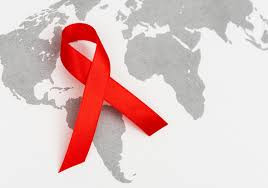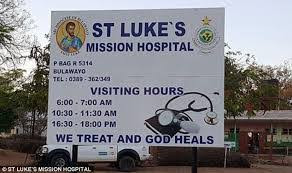
ZIMBABWE has recorded an increase in HIV/Aids-related deaths for the period January to June this year compared to the same period in 2024 amid concerns by lawmakers that foreign aid cuts to life-saving programmes are begging to be felt.
Health and Child Care minister Douglas Mombeshora, however, was quick to allay the fears saying the increase in HIV/Aids-related deaths was not related to funding cuts.
Kwekwe legislator Corban Madzivanyika had asked Mombeshora to provide statistics of people who succumbed to the chronic disease in Zimbabwe during the first half of the year.
“My response to question number 9 is that Aids deaths in 2024 from January to June were 5 712. Forthe same period, January to June 2025, there were 5 932,” Mombeshora said in response on Wednesday in Parliament.
“This means that in 2025, there were 220 more deaths compared to 2024 over the same period.”
Madzivanyika followed up with a supplementary question asking, “Is it not that this increment represents the challenge that we are now facing or the burden that has now increased, now that development partners have left Zimbabwe in terms of funding for HIV and Aids-related programmes?”
Mombeshora said the increase could not be attributed to the withdrawal of funds by partners.
According to Mombeshora, the country’s hospitals were fully stocked with life-saving drugs before the funding cuts.
- Chamisa under fire over US$120K donation
- Mavhunga puts DeMbare into Chibuku quarterfinals
- Pension funds bet on Cabora Bassa oilfields
- Councils defy govt fire tender directive
Keep Reading
“From January to June, the commodities for HIV/Aids had already been procured and the programmes have been progressing well,” he said.
“I think I have said this before in this Parliament that all patients on HIV treatment should not panic because we have enough medicines for them.
“I cannot give a specific reason now to say why we have these figures. Usually, we wait until the end of the year.”
He added: “You may find that maybe by the end of the year, we may have fewer figures for this year than last year.
“At the end of the year, that is when we start looking at month by month and try to see where we have missed it or find the reasons why the figures are going up, but at the moment, it is not related to the withdrawal because the commodities are there.”
Emakhandeni-Luveve lawmaker Discent Bajila and his Chiredzi Central counterpart, Ropafadzo Makumire, were, however, not convinced by Mombeshora’s explanation.
“We are left with 12 days of this month. What happens to our capacity to handle HIV/Aids cases post the 30th of June?” Bajila asked.
Makumire added: “What could be attributed to this increase, if he is denying that it has something to do with the withdrawal of donor funding?"
Mombeshora insisted that there was no need for panic in terms of availability of stocks of life-saving drugs.
“As the government, we have already procured commodities at the present moment to take us up to the end of September and we are still receiving more commodities to take us up to the end of the year. So, there are no shortages at all,” Mombeshora said.
Temporary Speaker of the National, Joe Tshuma, defended the minister, saying he had clearly explained himself on the matter.
“Whatever happened between January and June, it definitely could not have been the issue of a lack of medicine,” Tshuma said.
“So, I do not know what you want him to clarify. Did you want him to be God to tell you he knows how people have died? I think your question is a bit impossible.”
United States President Donald Trump froze many foreign aid programmes early in his presidency, before reinstating some life-saving assistance, including part of the United States President's Emergency Plan for Aids Relief, its global HIV initiative.
The Trump administration also decided to stop funding UNAids, the UN’s HIV/Aids programme that serves communities around the world.
According to the World Health Organisation, Zimbabwe has successfully achieved the 95-95-95 UNAids Fast-Track targets for adults, underscoring the country’s ongoing commitment to tackling the HIV epidemic.
These targets mean that 95% of people living with HIV know their status, 95% of those diagnosed are receiving treatment and 95% of those on treatment have achieved viral load suppression.










